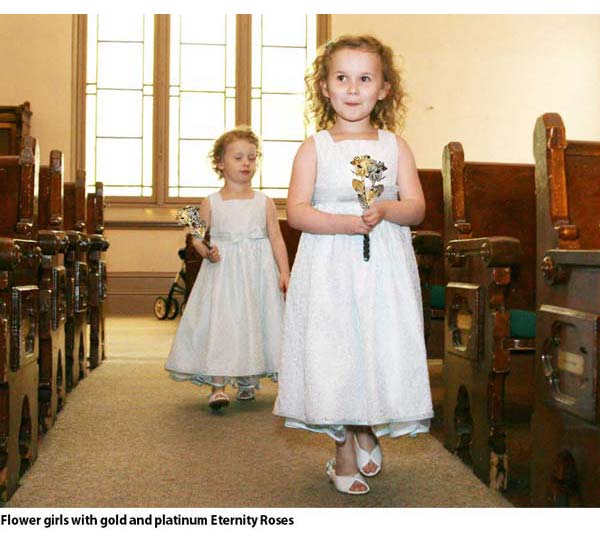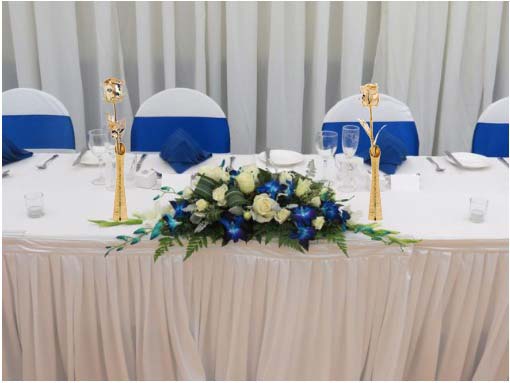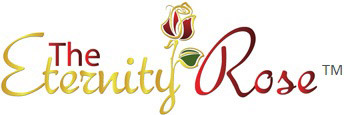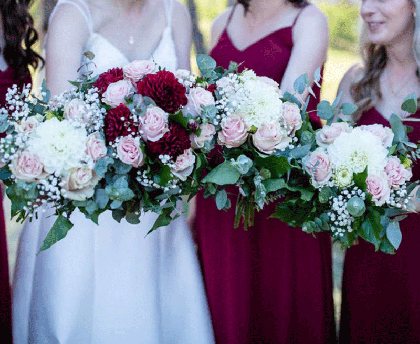Choosing the Perfect Flowers for Your Wedding: A Guide to Symbolic Blossoms
Weddings are a celebration of love, blending traditions, emotions, and symbols that create a memorable experience. Among these symbols, flowers hold a special place, bringing more than just colour to your big day—they carry deep meanings that enrich the celebration. This guide will help you pick flowers that are not just eye-catching but are also rich in symbolism, adding an extra layer of meaning to your wedding.
Understanding Flowers and Their Meanings
The practice of assigning meanings to flowers, known as floriography, began in the Victorian era. It allowed people to express feelings and messages through the types and colours of flowers they chose. For example, roses are a universal symbol of love, while lilies stand for purity and elegance. By understanding the language of flowers, you can select blooms that perfectly capture the emotions and messages you want to convey on your special day.
Roses: A Love Story in Bloom
Roses are the ultimate symbol of love and come in a rainbow of colours, each with its own meaning:
- Red roses are all about deep love, passion, and respect.
- White roses symbolise innocence and purity.
- Yellow roses bring joy and friendship to the fore.
- Pink roses are for admiration and gratitude.
- Orange roses scream enthusiasm and desire.
- Purple roses represent enchantment and majesty.
- Green roses symbolise growth and renewal.
- Black roses (which are actually dark red or purple) often mean farewell or the end of something, offering a unique twist to traditional floral selections.
- Blue roses, artificially dyed, stand for mystery and the quest for the impossible.
You may also think about an Eternity Rose in your selected colour, which is a natural rose that has been preserved to last a lifetime. This will serve as a treasured keepsake of your special day.
Lilies: Elegance and Purity
Lilies, with their majestic shape and scent, are a favourite for weddings, symbolising purity and refined beauty. The white lily, in particular, represents chastity and virtue, perfect for a traditional wedding setting.

Peonies: Wishes of Happiness and Prosperity
Peonies, known for their lush, full blooms, signify romance and prosperity. They are a popular choice for wishing the newlyweds a blissful, wealthy future. The shades of pink and red in peonies add a romantic passion to your floral arrangements.
By choosing flowers with meanings that resonate with you, your wedding flowers can do more than just decorate; they can tell a story, express emotions, and contribute to a day filled with love and meaningful traditions.
Seasonal Flower Choices for UK Weddings
Choosing flowers that are in season for your UK wedding ensures not only the best quality and value but also connects your celebration to the British seasons, reflecting the unique charm and tradition of the time of year. Here's what to consider for each season in the UK:
Spring
Spring in the UK brings a delightful array of blooms perfect for weddings, such as daffodils (symbolising rebirth and new beginnings), bluebells (representing constancy and everlasting love), and cherry blossoms (signifying the start of something beautiful and new beginnings).
Summer
Summer offers a rich palette of flowers, including lavender (for devotion and calmness), roses (the classic emblem of love and beauty), and peonies (symbolising prosperity and a happy marriage), all thriving under the British summer sun.
Autumn
Autumn weddings can be beautifully enhanced with rustic hues and textures, featuring flowers like asters (symbolising love and patience), dahlias (denoting commitment and an everlasting bond), and marigolds (representing passion and creativity).
Winter
For winter weddings, consider incorporating holly (for domestic happiness), ivy (symbolising fidelity and eternal love), and mistletoe (denoting peace and love), which are especially resonant with traditional British winter themes.
Selecting seasonal flowers for your UK wedding allows you to embrace the natural beauty and rhythm of the British seasons. It adds a deeply personal touch to your special day, ensuring your floral arrangements are not only stunning but also full of meaning and connection to the time of year.
Choosing Flowers with Deep Personal Meaning
In the heart of selecting your wedding flowers lies the opportunity to weave in blooms that carry a special significance to you and your partner. Perhaps it's the flower that marked your first date, a variety that flourishes in your childhood garden, or a species native to a place that holds dear memories for you both. These thoughtful inclusions not only make your wedding distinct but also imbue the day with layers of personal symbolism.
Aligning Your Flowers with the Wedding Theme
The flowers you choose should effortlessly meld with the overall aesthetic and tone of your wedding. For a classic British garden wedding, consider traditional blooms like roses, which symbolise love and romance, or peonies, representing prosperity and happiness, to capture the essence of elegance and beauty. If you're planning a more rustic or countryside affair, the charm of wildflowers or native British plants can add an authentic touch of joy and spontaneity.
Incorporating Meaningful Floral Elements Throughout
The Bride's Bouquet
This iconic wedding accessory is a reflection of the bride's taste and personality. Incorporating flowers with personal stories, such as those from significant moments or family traditions, adds a profound touch. Classic choices like roses and lilies are perennial favourites for their timeless beauty and symbolism, while adding native flowers like the bluebell (for constancy) or lavender (devotion) can introduce a uniquely British character.
Bridesmaids' Bouquets
These should echo the bride's bouquet while aligning with the overall theme of the wedding. Consider creating a simpler version of the bride's bouquet or selecting a single type of flower that carries through a theme or colour. The gentle textures of ferns or the delicate hues of sweet peas can offer a harmonious yet distinctive complement. This approach ensures the bridesmaids' bouquets enhance the beauty of the wedding while maintaining a cohesive look.
Groom and Groomsmen's Lapel Flowers
The boutonnieres are a chance to tie the groom's party to the bridal bouquet, often featuring a singular bloom from the bouquet itself to symbolise unity. Opting for a simple, elegant flower or a native British bloom can add a touch of sophistication and connection to the landscape.
Ceremony Venue
The floral arrangements for your ceremony should complement the setting, whether it's a grand church or an outdoor space. Traditional settings may call for elegant arrangements of white roses and lilies, while more informal or natural locations can be enhanced with arrangements of native greenery and wildflowers, adding to the atmosphere without overwhelming the senses.
Reception and Table Décor

The reception allows for creative expression with floral designs. Table centrepieces should facilitate easy conversation, fitting in with the overall decor and theme. A mix of heights and styles, featuring blooms like hydrangeas (for heartfelt emotions) and foxgloves (symbolising sincerity), can create an engaging and warm atmosphere. Consider incorporating unique elements like Gold-Dipped Eternity Roses as a symbol of enduring love, offering a lasting memento of your day.
By selecting flowers that resonate on a personal level and harmonise with your wedding's theme and location, your UK wedding can beautifully reflect your unique story and heritage, creating a day that's both memorable and deeply meaningful.
Embracing Cultural and Family Traditions through Flowers
In the realm of wedding planning, venturing beyond the personal preferences and seasonal selections to include flowers that resonate with cultural or family traditions adds a layer of depth and significance to your celebration. Certain blooms carry special meanings and are seen as symbols of good fortune in various cultures, particularly in wedding ceremonies. By incorporating these flowers, you pay homage to your heritage and invite ancestral blessings into your union.
- Indian Celebrations: Marigolds are a staple in Indian weddings, celebrated for their vibrant colours and representation of the sun, symbolising a bright and prosperous future for the couple.
- Japanese Ceremonies: Sakura, or cherry blossoms, are cherished in Japanese traditions for their delicate beauty and the reminder of life's fleeting nature, encouraging us to value every moment.
- Greek Traditions: Olive branches and ivy are woven into Greek wedding festivities as emblems of peace, unity, and everlasting love.
Or, perhaps your family has a tradition of incorporating a specific flower into wedding celebrations across generations. Choosing this flower for your own wedding is a beautiful way to honour your lineage, fostering a connection with your ancestors and bringing continuity to your family's story.
Consulting with a Florist
Once you've envisioned the floral themes that resonate with you, seeking the expertise of a professional florist is a wise next step. A florist can offer invaluable advice on the availability of your chosen blooms, suggest arrangement styles, and guide you on how to seamlessly integrate these flowers into your wedding décor. They might also recommend complementary flowers and foliage to elevate the aesthetic and symbolic value of your floral arrangements.
Conclusion: Crafting a Story through Your Wedding Flowers
Selecting flowers for your wedding that carry symbolic meanings enriches the celebration, making it uniquely yours. By delving into the language of flowers, embracing colour symbolism, considering what's in season, and integrating elements of personal and cultural significance, you can craft floral arrangements that are not only visually stunning but also imbued with deep meaning. The right selection of flowers will transform your wedding into a vivid narrative of your love story, creating memories that last a lifetime.



















